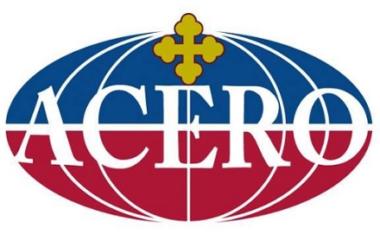A Charity Commission inquiry has found misconduct and mismanagement in the administration of a charity, which was unable to account for around £5m it sent to Iraq.
The regulator opened an investigation into the Assyrian Church of the East Relief Organization (ACERO) in 2020 to look at the charity’s activities overseas and issues relating to its governance among others.
Its inquiry followed an earlier regulatory compliance case into ACERO, opened in 2018, after the Metropolitan Police informed the Commission that it had launched a criminal investigation, which was later dropped, to determine whether the charity had committed terrorist financing offences.
ACERO said that it does not recognise the figures highlighted in the Commission’s report and is preparing legal action.
The inquiry
The Commission opened a statutory inquiry into ACERO in March 2020 to examine issues surrounding the administration, governance, management and financial controls of the charity by the trustees and their compliance with charity law.
It also looked at whether the charity’s funds had been used solely for charitable activities and could be accounted for.
In addition, the regulator looked at potential conflicts of interest and loyalty in regards to the management of ACERO’s sister charity in the US, which shares four trustees with the UK organisation.
The investigation found that ACERO sent over £5m to Iraq between 1 January 2015 and 17 July 2018 but could only show receipts and invoices for 7% (£365,732) of that amount. Of this, just over £132,097 are undated receipts.
The Commission concluded that there was “misconduct and/or mismanagement in the charity’s administration by the trustees” who had breached their duty and legal obligations on several occasions.
It said: “This includes a serious disregard for, and/or a lack of understanding of, the importance of proper financial controls and accountability in respect of the charity’s funds.”
Compliance case
In November 2018, the Commission contacted ACERO’s trustees to inform them that it had open a regulatory compliance case after the Met Police began investigating the charity on suspicion of terrorist financing. The investigation was later discontinued.
ACERO’s accounts for the year ended 31 July 2016 show that a payment of £147,689 was made to “Iraq hostages” during that year.
The Commission said that it became aware of “open-source reporting which named two of the charity’s trustees, as being involved in raising donations to secure the release of hostages being held in Syria by the proscribed terrorist organisation, Daesh”.
The trustees told the regulator during a meeting in 2018 that the “Iraq hostages” reference was an “error in wording made by the charity’s accountant”, adding that the money was used to support “released hostages and went to a bank account in Iraq belonging to a church”.
The charity’s bank accounts also revealed that six payments worth £7,858.80 had been made to a trustee’s personal credit card, but the trustees failed to prove that they were authorised nor all charitable expenditures.
The Commission said it uncovered “serious regulatory concerns in respect of the trustees’ administration and management of the charity.” These included the lack of evidence explaining the use of the £147,689 and no written agreement between ACERO and its sister charity.
ACERO: Commission’s report is disappointing
Andry Darmoo, secretary of ACERO, told Civil Society News: “The charity is disappointed in the report and has not accepted the figures that are contained within it. These simply stem from the Commission asking for several years’ worth of financial transactions within a short time frame and the charity not being in a position to meet that deadline.”
Darmoo said that during that time the charity invested more than £1.5m in a section of Camp Bastion, a former British Forces base located in Afghanistan, to “house innocent people fleeing IS”.
He added: “The charity went through a three-year police investigation, which was dropped, as expected and is currently preparing legal action of its own. The Commission’s statutory inquiry was being conducted at the same time and they were in communication with the police and had full access to all material that was under investigation [...], which they appear to have ignored.”
Related articles













